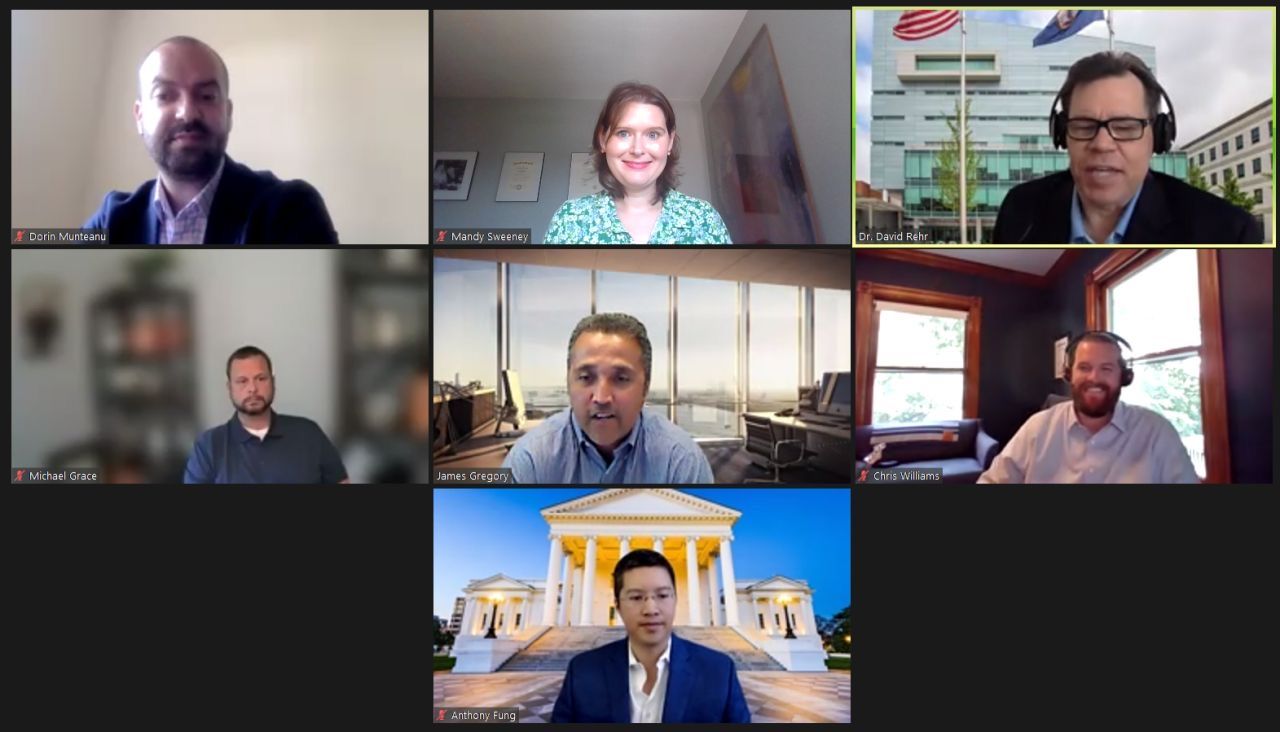In This Story

David Rehr said he has spent his entire life thinking about how government can be more efficient and effective.
The George Mason University alumnus and director of Mason’s Center for Business Civic Engagement at the Schar School of Policy and Government spent 25 years as a lobbyist on Capitol Hill. Before that, he was a child growing up in the Midwest, the son of a hardworking postman who didn’t attend college.
His time in government, he said, made him a bit cynical, feeling that citizens’ hard-earned tax dollars, like his father’s, weren’t being used the most resourcefully.
Rehr said he learned about Robotic Process Automation (RPA)—what he believes could be the key to solving government and public sector inefficiencies—when he met someone from global software company UiPath in 2020.
That led to Rehr co-founding Mason’s RPA Initiative, in partnership with UiPath, in January.
“This gives Mason a really unique opportunity to help the public sector, and to make programs work better for citizens,” said Rehr, who earned a PhD in economics from Mason in 1998. “We’re the only university I could find that has such a program.”
“Mason has a history of innovation, technology, and studying public policy,” said Bobby Patrick, UiPath CMO. “We believe the partnership is a great fit and will benefit citizens seeking greater value in public-sector programs and initiatives.”
Rehr spoke over the phone about the initiative and its benefits.
What is RPA and how is it used?
RPA is an easy-to-use, commercial off-the-shelf technology that can automate repetitive, rules-based tasks.
During COVID, RPA greatly reduced the time it took to receive COVID test results. Another application analyzed photos of infected lungs…the robotics could determine within about a minute if you were going to have a complication.
There’s a digital assistant where if you have to fill out HR paperwork, you can scan your driver’s license and all your paperwork is filled out for you. For W-4 forms that multiple people have to sign, RPA can automatically send it to your supervisors, who are signaled by the technology that they have something to approve. It’s continuous from there.
Tell us about Mason’s RPA Initiative.
At the Schar School, we’re always focusing on how we can be innovative in our teaching and make an impact in the world.
The mission of the initiative is to research, educate, and communicate how the adoption of technologies can improve productivity, operations and service delivery for traditional and novel challenges of the public sector.
What can we look forward to with the initiative?
We’re hoping to be able to hire more students to work on projects, to further educate through webinars and instruction, do research, and communicate the benefits of RPA to the public sector.
The [School of Business] also has an RPA class. We’re hoping to take a multidisciplinary approach: how can we use all the Mason resources to make sure our students are aware of the opportunities and get hired when they graduate.
Will RPA replace human labor?
There’s not a substitution effect; there’s a complementary effect. This technology will help programs work better for people and more efficiently. It liberates workers from mundane things, which don’t appeal to their imagination. Using RPA will allow people the freedom to think about high value work priorities and unleash greater economic growth, greater prosperity, make everyone’s lives better, and help people have more fulfilling lives.
Where can people go to learn more about RPA?
The initiative produced a paper aimed at non-IT workers in June that’s been picked up around the world. We include examples of what’s happening globally with RPA, and explain the technology in a non-technical way. Those interested in getting involved can visit the RPA Initiative website.
